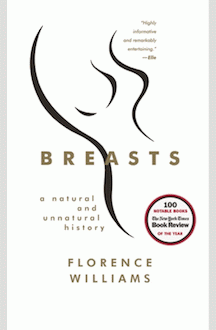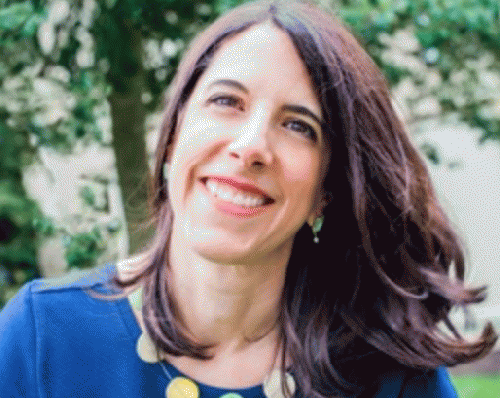My guest today is science writer, Florence Williams, a contributing editor at Outside Magazine who also writes for National Geographic, The New York Review of Books, Slate, Mother Jones, O, The Oprah Magazine, and Bicycling.
Joan Brunwasser: Welcome to OpEdNews, Florence. The New York Times Book Review makes a list each year of the top 100 notable books for fiction, poetry and nonfiction. Your first book, Breasts, a natural and unnatural history [2012] made that list for nonfiction. While it's extremely well-written and shot through with humor, the topic is a serious one and often quite upsetting. Were you caught off guard by this high level of recognition, especially first time out?
Florence Williams: Well, as an environmental journalist, I'm pretty used to writing things and watching them go bump against the floor. This is science journalism after all, and as you mention, the topics can get depressing. But this topic is BREASTS! So I figured it would get more attention than the usual clean air act story. I tried hard to think in new, original ways, and the idea of looking at a body part through an environmental lens was pretty fresh. So it was really gratifying to see that get some attention and become part of a larger conversation about health, pollution, culture, feminism and the environment.

cover art for Breasts: a natural and unnatural history
(Image by courtesy of Florence Williams) Details DMCA
JB: Why breasts for your first book? When breasts are frequently seen as little more than sex objects, were you afraid you wouldn't be taken seriously?
FW: Maybe I went into it naively, but as someone who always took breasts seriously, I didn't think it would be weird. I got the idea for writing the book when I found out there were toxic industrial pollutants rising exponentially in American breast milk, and I wrote an article about that for the New York Times Magazine. I never came at it as a breasts-are-titillating topic. It only became a little more engaged with that as the book came out, and all these morning radio shows wanted me on for some laughs (as well as a few moments of sobriety). That was kind of a surprise to me, actually. I guess there are still a lot of adolescent brains doing talk radio...But I think I was still able to get some good points across, I hope.
Scientists now believe that the primary biological function of breasts is to make men stupid.
Next Page 1 | 2 | 3 | 4 | 5 | 6 | 7
(Note: You can view every article as one long page if you sign up as an Advocate Member, or higher).






